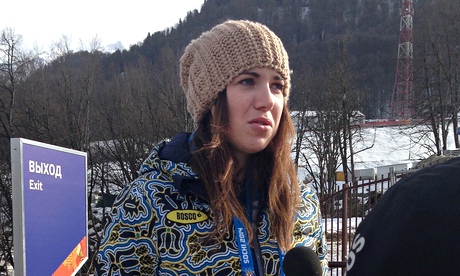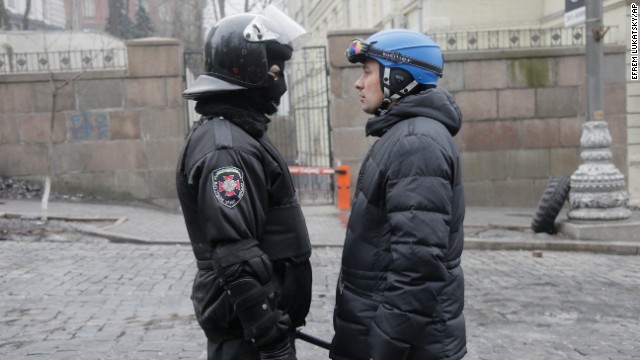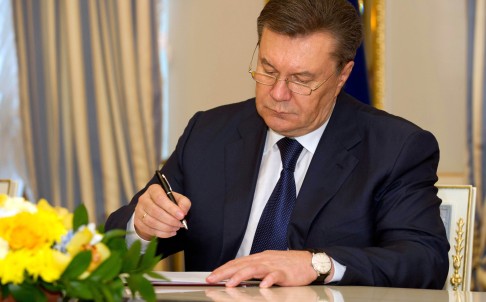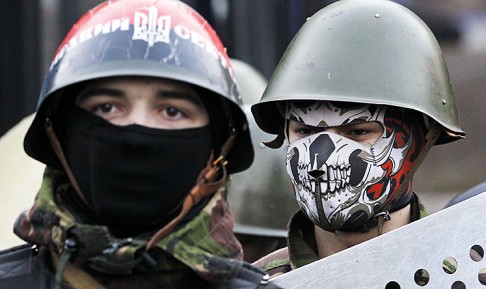Ukraine crisis : Snipers filmed 'shooting at protesters' in Kiev
Footage emerges purporting to show snipers from the Ukrainian security forces shooting at protesters in Kiev
4:24PM GMT 20 Feb 2014
<iframe width="560" height="315" src="//www.youtube.com/embed/Pb7R4N50qTU?rel=0" frameborder="0" allowfullscreen></iframe>
Ukraine's brittle truce was left in tatters on Thursday by raging street battles between baton-wielding protesters and riot police that left dozens of people dead as the EU was meeting to consider sanctions.
Bodies of anti-government demonstrators lay amid smouldering debris after masked protesters hurling Molotov cocktails and stones forced gun-toting police from Kiev's Independence Square - the epicentre of the ex-Soviet country's three-month-old crisis.
More than 60 protesters died from gunshot wounds, according to an opposition medic, making it the bloodiest day of violence since Ukraine's independence.
Police fired live ammunition "in self-defence" when protesters threatened them, said the interior ministry, which also accused "radical extremists" of seizing 67 officers.
Footage emerged purporting to show snipers from the Ukrainian security forces shooting at protesters from behind rows of sandbags in Kiev.
Police said a sniper perched on a hotel roof had injured 20 officers with live ammunition fire, while protest leaders accused the city police of being behind the sniper attacks.
Sources:AFP/ Radio Svoboda
Last edited:







